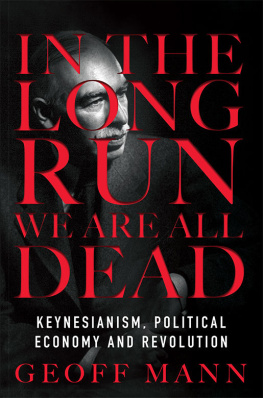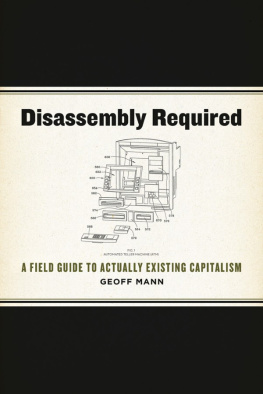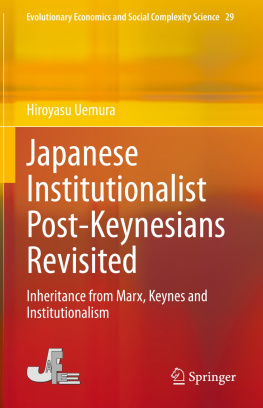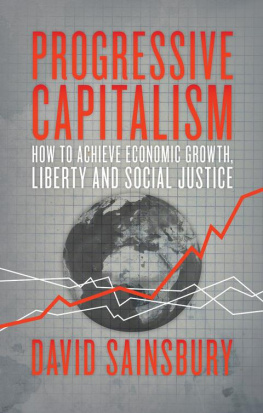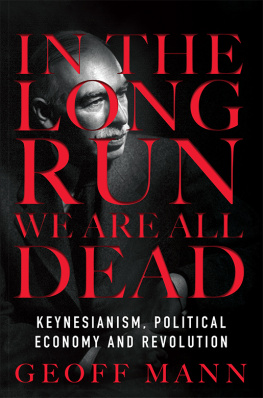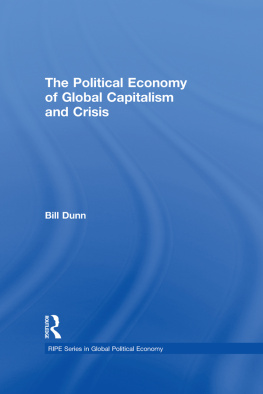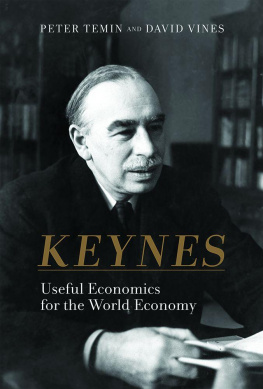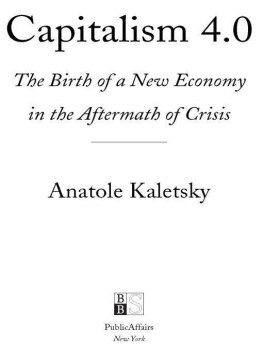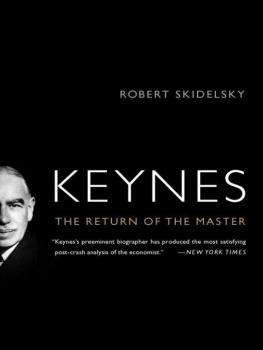IN THE LONG RUN
WE ARE ALL DEAD
IN THE LONG RUN
WE ARE ALL DEAD
Keynesianism, Political Economy, and Revolution
Geoff Mann

First published by Verso 2017
Geoff Mann 2017
All rights reserved
The moral rights of the author have been asserted
1 3 5 7 9 10 8 6 4 2
Verso
UK: 6 Meard Street, London W1F 0EG
US: 20 Jay Street, Suite 1010, Brooklyn, NY 11201
versobooks.com
Verso is the imprint of New Left Books
ISBN-13: 978-1-78478-599-4
eISBN-13: 978-1-78478-602-1 (US)
eISBN-13: 978-1-78478-601-4 (UK)
British Library Cataloguing in Publication Data
A catalogue record for this book is available from the British Library
Library of Congress Cataloging-in-Publication Data
Names: Mann, Geoff, author.
Title: In the long run we are all dead / Geoff Mann.
Description: Brooklyn : Verso, 2017. | Includes bibliographical references and index.
Identifiers: LCCN 2016030966 (print) | LCCN 2016045446 (ebook) | ISBN 9781784785994 (hardback) | ISBN 9781784786021 ()
Subjects: LCSH: Economic history1945- | Keynesian economics. | Financial crises. | Economic policy21st century. | BISAC: POLITICAL SCIENCE / Economic Conditions. | POLITICAL SCIENCE / Political Ideologies / Democracy.
Classification: LCC HC59.M2486 2017 (print) | LCC HC59 (ebook) | DDC 330.15/6dc23
LC record available at https://lccn.loc.gov/2016030966
Typeset in Adobe Garamond by Hewer Text UK, Ltd, Edinburgh
Printed in the US by Maple Press
The plague ends too; it rights itself. But hundreds of thousands have perished of it; theyre all dead. Everything has thereby been straightened out again.G. W. F. HegelBut this long run is a misleading guide to current affairs. In the long run we are all dead. Economists set themselves too easy, too useless a task if in tempestuous seasons they can only tell us that when the storm is long past the ocean is flat again.J. M. Keynes
Contents
J ohn Maynard Keynes is commonly called the most influential economist of the twentieth century. That may well be true, but the reasons, I think, are not to be found in his originality or his argumentation. As creative and fascinating a thinker as he was, his ideas became extraordinarily powerful for the same reason anything else becomes extraordinarily powerful: his audience empowered them. He did not discover Truth, fleeting or permanent. In a time of war, economic collapse, and fascism, he answered questions many people desperately wanted answered. The Truth of his answers was entirely secondary to the fact that they explained the catastrophe and legitimized the panicked anxiety that suffused the politics of his time and place. Keynes told people they were correct to be terrified, but he also told them that it didnt have to be terrible. When the world seems at risk of falling apart, who would not want to hear that?
I suppose this figure of the economist as saviour (the subtitle of the second installment in Robert Skidelskys excellent three-volume biography of Keynes) is imaginable in all kinds of political economic systems, but Keyness particular diagnosis and consequent prescription were a product of their historical moment in the development of liberal capitalism. Employment, Interest, and Money in 1936, liberal capitalism had already been around, in at least a broadly recognizable form, for more than a century. Today, eighty years after The General Theory , it is still around, if of course in a slightly different variety. The persistence of liberal capitalism matters in multiple ways, but the one I want to emphasize here is that as long as it persists, so too will Keynesianism. The anxiety and hope beating at the heart of Keyness ideas is endemic to capitalist modernity in this sense, and it becomes especially visible in moments of crisis.
A generous and detailed engagement with The General Theory is of course essential to this account. Because the anxiety and hope that suffuses it, however, is expressed in more or less technical language (some of it of Keynes own coinage), and is presented as a critique of an older set of ideas that may be unfamiliar, its analysis might require a little decoding for some readers. At the political-economic and conceptual level, this is the purpose of of this book, three chapters entitled How to Read The General Theory I, II and III. Yet in the course of writing In the Long Run We Are All Dead , I have learnedand it is no surprisethat most people (even economists) are largely unfamiliar with the contents and argument of The General Theory , and hardly anyone has read it. Many of us have learned what we think we know about the specifics of the books arguments from vague references to effective demand, liquidity preference, or the enthanasia of the rentier. But, as I try to show in the chapters that follow, there is much more to The General Theory than is often thought, and the ways in which the distinctively Keynesian critique animates it can tell us a great deal not only about Keynes and Keynesianism, but about political economy as a way of grasping the world.
Consequently, I think it is quite possibleindeed, I hope it is likelythat readers may want to have access to the somewhat more technical details of The General Theory s argumentation and structure. With this in mind, I have put together an e-book supplement to In the Long Run , entitled A Companion to The General Theory of Employment, Interest, and Money. It contains a brief introduction to The General Theory and identifies some of the important contributions to subsequent debates concerning the varieties of Keynesian economics. Most of the text, however, is a series of reasonably detailed chapter-by-chapter summaries. The summaries attempt to take Keyness ideas on their own termsthey describe as opposed to critique , the latter being the task of the book you hold in your hands. The Companion is intended to lay out the way that Keynes builds up the argument of The General Theory , and to explain his terms and claims in a way that is accessible to those new to them, but avoids oversimplification. It is available for download at Versos website (versobooks.com), and I hope those interested will take advantage of it. It is worth noting that I have written it in the hope that it might also serve as a helpful readers aid for anyone reading or teaching The General Theory or Keynesian economics, whether or not they read In the Long Run .
Understanding The General Theory and Keyness ideas in this dual sense, both in some detail and in their broader political-economic implications, allows us to see the ways in whichas I argue in what followsKeynes was in no way the first Keynesian, he was not the last, and there will be more yet. What we call Keynesianism is as old as liberal capitalism, and as long as it is the hegemonic mode of social and political economic organization, as it remains in much of the world, Keynesian politics and political economy will find themselves empowered when they are deemed most desperately necessary. In this sense, Keynes and Keynesianism were not resurrected following the financial meltdown of 20072008, because neither was ever dead, however hard some mainstream economists might have tried to convince us otherwise. Capitalist modernity, in fact, is and always has been Keynesian on the inside, as it werethe call for the state when disorder looms or revolution threatens has always been an option, one that, like a panic button, is essential even when we never use it. Indeed, political economy isor at least I try to show that it isKeynesian by definition: when the social order is fraying, it is the art and science of revolution without revolutionaries. Revolution is its raison dtre; born in the wake of the French Revolution, the ghost of Robespierre forever stalks it.
Next page
